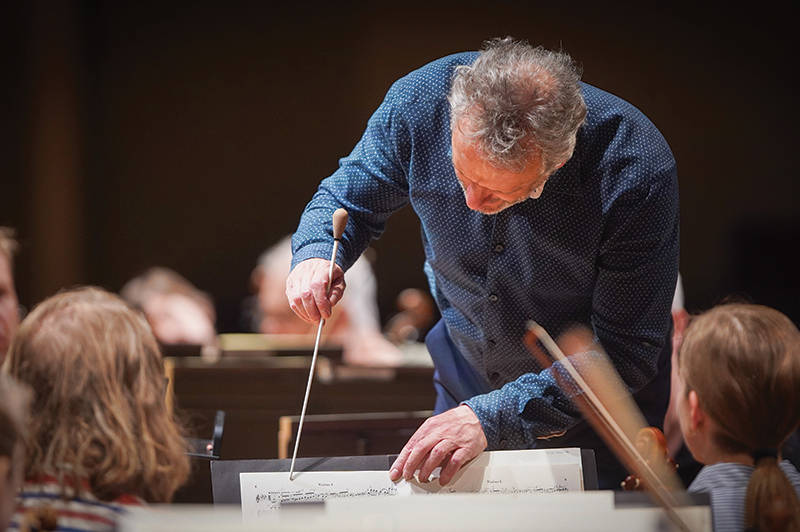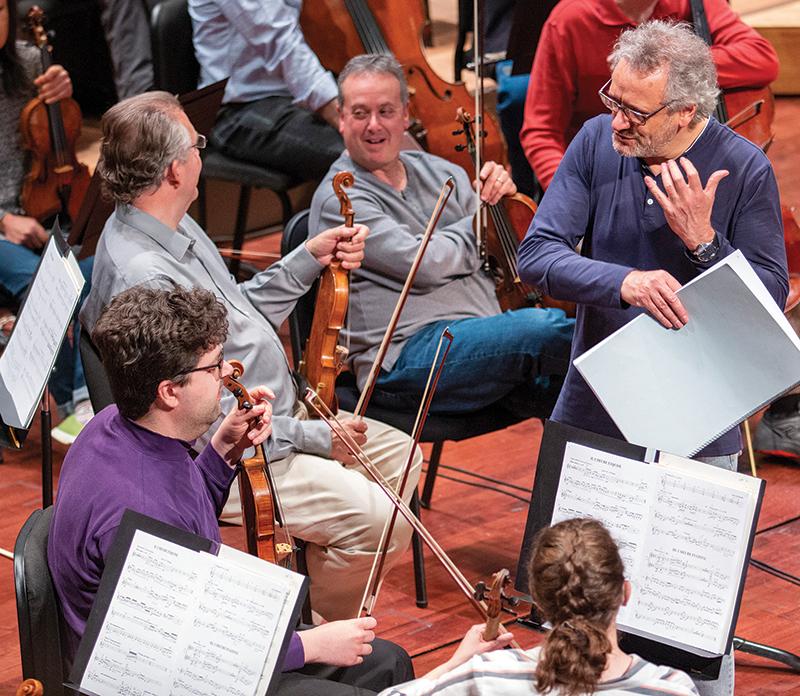20 Minutes with Louis Langrée
The CSO’s outgoing music director speaks with Ken Smith about what he looks for in auditions
by KEN SMITH
You’ve often talked about the ideal symphonic repertory being a mixture of old and new, but now you say that about the players as well.
Of course, tradition is very important. The Cincinnati Symphony Orchestra has their own DNA, a pride of ownership in their particular style. At the same time—like any institution—they need fresh blood, a rotation where a new generation learns from the veterans while also bringing something unique to the table. The basis is still there, but the sound continually evolves.

Is there an ideal balance, whether in age or experience or culture?
It’s not a theoretical thing. You can have older players who are still super enthusiastic, eager to discover new ideas, and you can also have young players who feel this is how they’ve played a piece and they don’t want to change. So it’s not objective. It depends both on a particular orchestra’s tradition and its recent history. A big change for the CSO was with Music Hall’s recent renovation and the resulting new possibilities in sound.
So what do you look for in new players?
I want to see a musician’s personality. The individual level of playing has increased dramatically in the past decade—not just in Cincinnati but all over the world. Maybe 40 years ago it was enough to hire someone who could simply play the notes with proper clarity, articulation and intonation: a true professional orchestral player. This generation is completely different; they are simply musicians. Depending on the circumstances, they also need to be soloists, chamber music players. What makes the difference is not technique, but charisma and quality of imagination. Some conductors say, “I don’t want to work with musicians who know as much as me.” I’m just the opposite. I want to work with musicians who have an opinion. I have my opinion, too, but the musical process is to add, to confront, to create a musical dialogue. We should inspire each other. The true pleasure of orchestral musicians should be to play differently with every conductor without losing a sense of who they are.

How do you discover in an audition situation if musicians are “your kind of people”?
For example, I’ll take a musical phrase—any phrase—and ask a candidate to play it as if it were from a Bach Passion. Then I’d say, okay, now play it like a Puccini seduction aria. You can quickly gauge a player’s musical culture; do they have a sense of different musical styles, different articulations, different uses of vibrato. But you also get a sense of their musical imagination. The same raw phrase can take on such different meanings. Also, in the super-final round, I have them play excerpts from the repertoire to see how quickly they can blend with other musicians. Recently, I had a tuba and bass trombone play a phrase in octaves, first with the tuba determining the phrasing and tone color, then a second time with the trombone in the lead, then a third time where they had to find a mix of the two.
How many audition rounds are there?
There’s the preliminary round and semi-finals, then I come for the finals and super-finals. By then, we know if musicians have a personality. We don’t want machines. It used to be, the very best orchestras in Europe had players with the best technique. Now, the difference is a higher level of energy, of courage and imagination. They don’t wait for the conductor to tell them how to play. They want the conductor to inspire them to play differently than they did before.
Read the main story, "The Sound of the Orchestra."